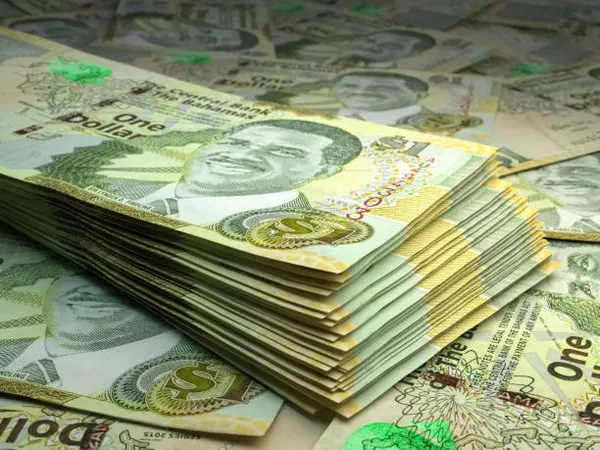The Bahamian dollar (BSD), the official currency of the Commonwealth of The Bahamas, is not confined solely to the archipelagic nation it represents. While it is the primary medium of exchange in The Bahamas, the currency’s influence extends beyond its borders, finding usage in a number of countries around the world. This article delves into the nations where the Bahamian dollar is accepted and explores the historical, economic, and geopolitical factors that contribute to its international usage.
The Origin of the Bahamian Dollar:
Before examining the countries where the Bahamian dollar circulates, it is crucial to understand its origin. The Bahamian dollar has been the official currency of The Bahamas since 1966, when it replaced the British pound. Pegged at par to the United States dollar (USD), the Bahamian dollar has maintained a fixed exchange rate with the USD, fostering stability in the nation’s monetary system.
Countries Using the Bahamian Dollar:
While The Bahamas remains the primary user of its eponymous currency, there are instances where the Bahamian dollar is accepted in neighboring jurisdictions. One notable example is the Turks and Caicos Islands, a British Overseas Territory located in the Atlantic Ocean. Despite being under British sovereignty, the Turks and Caicos Islands have embraced the Bahamian dollar alongside the United States dollar, underlining the currency’s transnational significance in the region.
The acceptance of the Bahamian dollar is not solely limited to the Caribbean. In parts of Florida, USA, particularly in areas with a significant Bahamian diaspora, the currency is sometimes accepted in certain establishments. This phenomenon is a testament to the strong cultural ties between The Bahamas and its diasporic communities, as well as the practical considerations of facilitating trade and tourism.
Factors Contributing to International Usage:
Several factors contribute to the international acceptance of the Bahamian dollar. One primary factor is the close economic ties between The Bahamas and its neighboring countries. The interconnectedness of economies in the Caribbean region, along with shared tourism and trade interests, has led to a degree of currency acceptance beyond national borders.
Tourism plays a pivotal role in the Bahamian economy, with visitors from various countries arriving to explore its pristine beaches and vibrant culture. As a result, businesses in tourist-heavy areas may find it advantageous to accept the Bahamian dollar to cater to the preferences and needs of international visitors, simplifying transactions and enhancing the overall tourist experience.
Furthermore, the stability of the Bahamian dollar, pegged to the USD, has contributed to its acceptance as a form of payment in certain regions. Merchants and businesses appreciate the predictability of exchange rates, minimizing the risks associated with currency fluctuations and fostering a conducive environment for economic transactions.
Geopolitical Considerations:
Geopolitical factors also play a role in the acceptance of the Bahamian dollar in specific regions. The historical ties between The Bahamas and the United Kingdom, coupled with the British Overseas Territory status of the Turks and Caicos Islands, contribute to the use of the Bahamian dollar in these territories. Additionally, the historical legacy of British colonialism has left a lasting imprint on the region’s economic and cultural landscape.
The presence of Bahamian diaspora communities in certain areas, such as parts of Florida, creates a demand for the Bahamian dollar in those locales. This demand is driven by a desire to maintain cultural connections and facilitate commerce within these communities, demonstrating the intricate web of cultural and economic factors that influence currency acceptance.
Challenges and Considerations:
While the Bahamian dollar’s international acceptance brings various benefits, it also poses challenges. Exchange rates, even when pegged to the USD, can fluctuate, impacting the relative value of the Bahamian dollar in comparison to other currencies. This volatility can influence the willingness of businesses and individuals to accept the currency, particularly in regions where alternative currencies are prevalent.
Additionally, regulatory considerations and legal frameworks can affect the ease with which the Bahamian dollar is accepted outside of The Bahamas. In some jurisdictions, legal restrictions may limit the use of foreign currencies, potentially hindering the widespread adoption of the Bahamian dollar.
See Also: Bahamian Dollars vs. US Dollars: What’s the Difference?
Conclusion:
The Bahamian dollar’s journey beyond the shores of The Bahamas exemplifies the intricate interplay of economic, cultural, and geopolitical factors that influence currency acceptance. From the Turks and Caicos Islands to diaspora communities in Florida, the Bahamian dollar serves as a symbol of connectivity and shared history. As The Bahamas continues to play a prominent role in regional affairs, the international usage of its currency is likely to persist, underscoring the enduring influence of this vibrant archipelagic nation.


